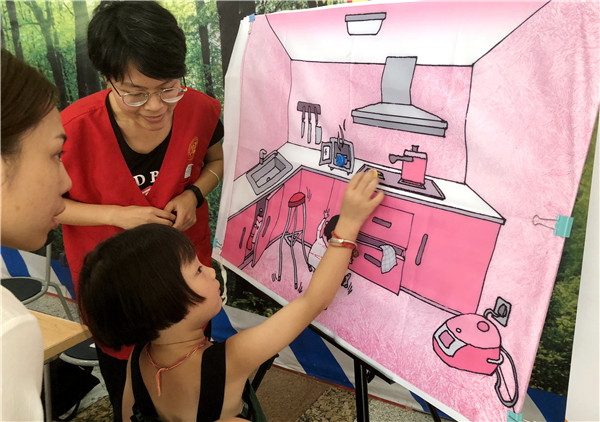
From the People’s Daily app
This is Story in the Story
About 50 million children in China are injured in accidents every year, and about 71,000 die, according to a report published in December by the National Center for Chronic and Noncommunicable Disease Control and Prevention and Safe Kids Worldwide.
In July, accidents claimed the lives of 40 children and adolescents across the country, according to media reports.
According to pediatricians, a lack of safety education is a main reason that accidents such as these occur to children in China.
"Accidents are the leading cause of death among children and adolescents under 14 in China. We believe that most accidents are avoidable if kids are equipped with sufficient knowledge and take precautions," said Zheng Jicui, a Shanghai-based pediatrician who specializes in trauma treatment.
Children generally believe their homes are safe but actually nearly half of all accidents happen in the home, far more than in the community or on the roads, according to Zheng, who quoted national CDC data.
Today's Story in the Story will look at how Chinese physicians and NGOs help children to identify and deal with hazards at home and in the community.

A girl tries to identify potential dangers in a kitchen during a safety lecture in Shanghai. (Photo: China Daily)
As she delivered a lecture to a group of school students at a hospital in Shanghai, visiting pediatrician Zheng Jicui, posed a question.
"Have any of you ever bumped into something by accident and been injured?" she asked the group, ages 7 to 14.
Zhou Qile, an 8-year-old boy, responded quickly: "I once stumbled over a scooter placed in the middle of the room at home. I fell and bumped my head."
Other children recalled how they had fallen off chairs when climbing up to grab food or toys that were out of reach, had been scalded by mugs of hot water left on tables, or hurt when other children had carelessly hit them in the eye with chopsticks.
That is why the Children's Hospital at Fudan University in Shanghai is offering a series of classes for school students during the summer vacation for the last two years.
The hospital offers eight lectures that focus on different topics-such as safe swimming and identifying foods that can potentially trigger allergic reactions or breathing problems.
They have been arranged by the hospital and the China branch of the NGO Safe Kids Worldwide to alert children to the dangers that may lurk in seemingly commonplace activities.
Zheng added that it is essential that the relevant information is provided by experts, such as doctors, and that the classes are offered directly to children rather than just adults.
According to a student who took the safety class, her teacher at her regular school showed the class various safety videos – but offered no in-depth discussion on safety techniques.
Cui Minyan, chief representative of the China office of Safe Kids Worldwide, said, "If this is a reflection of the situation regarding safety education in one of China's most-vibrant cities, it is understandable that improvements are urgently needed in other regions."
This year, 25 children from several schools were selected to attend the classes, and they will be expected to pass on the knowledge they gain to their peers.
The number of participants is limited to ensure that every child has the chance to engage in the scenarios so they understand the safety procedures being taught.
The children taking part in the classes are required to undertake assignments after every lesson, such as identifying potential safety hazards at home, rectifying the situation, and taking "before and after" photos to mark the changes.
The assignments are designed to inspire behavioral changes in the children as they become aware of potential dangers, said Fu Lili, director of the hospital's Department of Social Work.
For example, when a lecturer wanted to stress the importance of wearing a helmet when riding a bicycle, she started by dropping an unprotected egg onto the ground, followed by one wrapped in a foam blanket.
"It makes a big impression on the kids when they see the first egg break while the second remains intact," Fu said.
"Some parents told us that after the class, their children insisted on wearing helmets when they rode their bikes, and said, 'Mom, I don't want my head to become a broken egg!'"
(Produced by Nancy Yan Xu, Raymond Mendoza, and Lance Crayon. Music by: bensound.com. Text from China Daily.)


